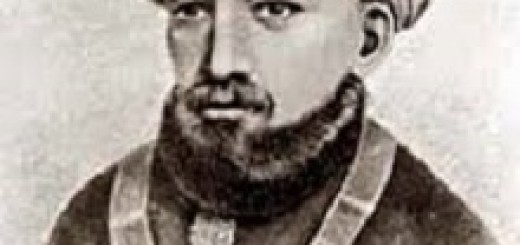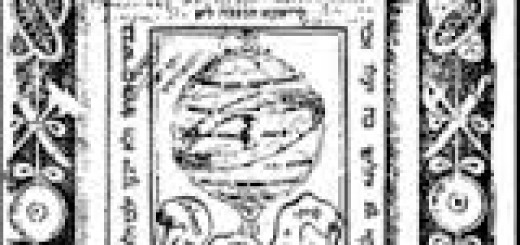By Rabbi Dovid Markel
In June of 1967, a young man terrified for his family’s safety in Israel attempted to convince the Rebbe that he should allow his cousin—an only child who was studying in a Lubavitch Yeshiva in Israel—to leave the country and come back to the U.S until the winds of war passed. “The parents are beside themselves with anxiety,” stated the individual in his audience with the Rebbe. “They would greatly appreciate it if the Rebbe would allow their only child to come home until the danger blows over.” The Rebbe’s warm smile disappeared and a grave expression now replaced it. “I have thousands of only children in the Land of Israel,” said the Rebbe. “If I tell them to remain there, it is because I am certain that no harm shall befall them.”
There are some people who, when they say “I,” they include only themselves. Others’ “I’s” extend further to include their spouse and their family. Still others’ “I’s” include their community or city. A true Jewish leader’s “I” though, includes the entirety of the Jewish people.
His personal needs are the needs of the Jewish people and the needs of the Jewish people are his personal needs. The Jewish leader’s entire existence is so intertwined with his people, that it is impossible to separate the two.
This idea is expressed in a statement that the Torah makes concerning Yisro’s arrival in the Israelites’ camp. The verse[1] states: “Now Moshe’s father in law, Yisro, the chieftain of Midyan, heard all that G-d had done for Moshe and for Israel, His people that the Lord had taken Israel out of Egypt.”
Rashi[2] comments on the verse’s statement, “for Moshe and for Israel” and explains: “Moshe was equal to all of Israel.” The leader is not merely a singular individual appointed to the function of leading the consortium—his very identity is not a personal existence with individual characteristics, but a general one, which incorporates the entire Jewish people in his person.
Two forms of leadership
When Shmuel the Prophet grew old, the nation approached him and said[3], “Set up for us a king to judge us like all the nations.” This request bothered Shmuel, as the verse[4] states, “And the thing was displeasing in the eyes of Shmuel, when they said, ‘Give us a king to judge us.’”
Shmuel’s displeasure seems to be misplaced, however. For, had not the Torah itself commanded[5], “You shall set a king over you, one whom the Lord, your G-d, chooses; from among your brothers?”
This question can possibly be answered through an understanding of the characteristics of “a king…like all the nations,” which the Jewish people requested. By understanding the secular theory of government, it can be appreciated what it was about this wish that bothered Shmuel.
Secular moral philosophy has poured much ink on the rights of individuals and governments. They are bothered as to the reason why governments are given the ability to encroach on an individual’s right for a public end.
Jean-Jacques Rousseau, in his book The Social Contract, posits that while the natural state of man is to be an individual, man forgoes that right and enters a contract with the greater society in order to protect his freedoms and rights.
From his point of view, society is no more than a group of individuals who have created a corporation, and the king or sovereign is no more than a private individual who is tasked with running it. While in his public life the king hopefully worries about the greater good, in his private life he thinks only of himself.
It is perhaps this secular system of government that the prophet Shmuel so detested and was therefore vexed by when Israel requested a king.
For, while the Torah[6] issued a commandment, “You shall set a king over you, one whom the Lord, your G-d, chooses; from among your brothers,” the manner in which they requested this leader was wrong[7].
The king that Israel requested was a secular sovereign—a king over their bodies—who had no depth of soul and would not be one with the Jewish people on any deep level. The king that G-d wished that Israel appoint was one that was spiritually connected to their very identity and soul, a leader who was one with them and with G-d on the deepest of levels.
A soul leader
The Medrash[8] explains the verse[9], “And he was King in Yeshurun” to mean that Moshe was considered the first king of Israel. Accordingly, through an understanding of Moshe’s distinct personality, one can gain an appreciation for true Jewish leadership[10].
The Torah states[11] concerning the attack of Korach against Moshe, that when Moshe heard their attack “he fell on his face.”
While the Torah is not explicit as to what Korach’s assault on Moshe was, that affected him to such an extent, the Talmud[12] explains it as follows:
“And when Moshe heard it, he fell on his face.” What news did he hear? — R. Shmuel b. Nachmani said in R. Yonasan’s name: “That he was suspected of [adultery with] married women, as it is written[13], ‘They were jealous of Moshe in the camp,’ which teaches that every person warned his wife on Moshe’s account.”
This is peculiar; Moshe was an individual who led them out of Egypt with great miracles, gave them the Torah and spoke directly to G-d. How is it possible that they suspected him of such a heinous sin?!
Maharal[14] explains this Medrash based on the Talmudic statement[15] that before a child is born, it is declared in Heaven who his mate will be. According to the Torah, one’s spouse is not only a person that one chooses to marry, but is a veritable “helpmate opposite him[16],” and the other half of one’s soul.
Just as one’s spouse is not a separate person that one connects with but a part of one’s soul, the Jewish leader is the same. His very identity and soul is such that it is inclusive of all of the Jewish people. This being true, every individual is able to relate to him on the deepest of levels and his identity incorporates the essential identity of the congregation of Israel[17]. It is for this reason that they “were jealous of Moshe,” and it is also this concept that is the secret of Jewish leaders.
Unlike a secular leader who is merely a private individual that was appointed to a public position, the Jewish leader’s very identity is the entirety of Israel.
It is this type of king whose very identity is the entirety of the Jewish people that Shmuel wished that Israel appoint. He was disappointed that they merely wished a physical king, and not one whose soul connected the Jewish people to each other and the Jewish people to G-d[18].
Moshe is Israel
In Chassidic thought[19] it is explained, that the leader of the generation is referred to as the essential soul of the generation[20].
All ideas in Torah are expressed in both the esoteric part of the Torah as well as the exoteric. This idea as well is expressed in the basic explanation of Rashi on the Torah.
“Moshe is Israel, and Israel is Moshe,” says Rashi[21]. “To teach you that the leader of the generation is like the entire generation, because the leader is everything.”
Meaning to say, it is not that when Moshe does something for the congregation of Israel he has no personal involvement, but otherwise has his own individual identity. Rather, the very identity of Moshe is that he is the “leader of the generation” and he is therefore “like the entire generation.” The Jewish leader’s very essence is the community, and therefore, by extension, all that he does is an act of Israel.
The same is true of the second half of Rashi’s statement, “Israel is Moshe”: It is because “the leader is everything.”All the particular needs of the congregation are the personal needs of the leader, and all their needs come through him. The leader is the conduit for both the physical and the spiritual needs of his generation. Since everything comes through the leader, “Israel is Moshe.”
A true Jewish leader—as exemplified by a Rebbe—connects all of the Jewish people together on the deepest of levels and cares for all of their needs—spiritual and physical—as if they are his own. He connects a Jew to the depth of Torah and connects the Jewish people as one so that they can be one with G-d in the deepest of ways.
[1] Shemos 18:1
[2] ibid
[3] I Shmuel 8:5
[4] I Shmuel 8:6
[5] Devarim 17:15
[6] ibid
[7] See Rambam, Laws of Kings 4:10 that this is not an optional commandment and that it serves a deep spiritual purpose. See as well Talmud, Sanhedrin 20b that insinuates that the Jewish people must appoint a king. See however, Sadya Gaon and Ibn Ezra who explain that it is an optional commandment. Abarbanel even goes so far as to say, that in truth, G-d did not wish a monarchy but only allowed it upon request. See as well Sefer HaMitzvos (Tzemach Tzedek) that explains the significance of a monarchy according to Chassidic thought.
[8] Vayikra Rabba 31:4
[9] Devarim 33:5
[10] See Rashi and Ramban however, who explain that the verse is referring to G-d. See Rambam, Pirush HaMishna, Shavuos 2:1 that he was indeed considered a king. Notwithstanding his legal classification, it is clear that Moshe serves as the paradigm for Jewish leadership.
[11] Bamidbar 16:4
[12] Sanhedrin 110a
[13] Tehillim 106:16
[14] Be’er Hagola, Be’er 5. See Ohr HaTorah, Bamidbar 2 for additional explanations.
[15] Sota 2a
[16] Bereishis 2:18
[17] Maharal explains that their mistake was that Moshe’s soul connection was not in an immanent manner but in a transient one.
[18] See Mitzvos Minuy Melech, ibid.
[19] See for example Sharei Teshuva, Admur HaEmtzai, Pada BeShalom.
[20] Heb. Yechida HaKlalis
[21] Rashi, Bamidbar 21:21






















